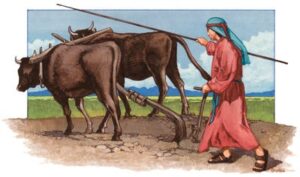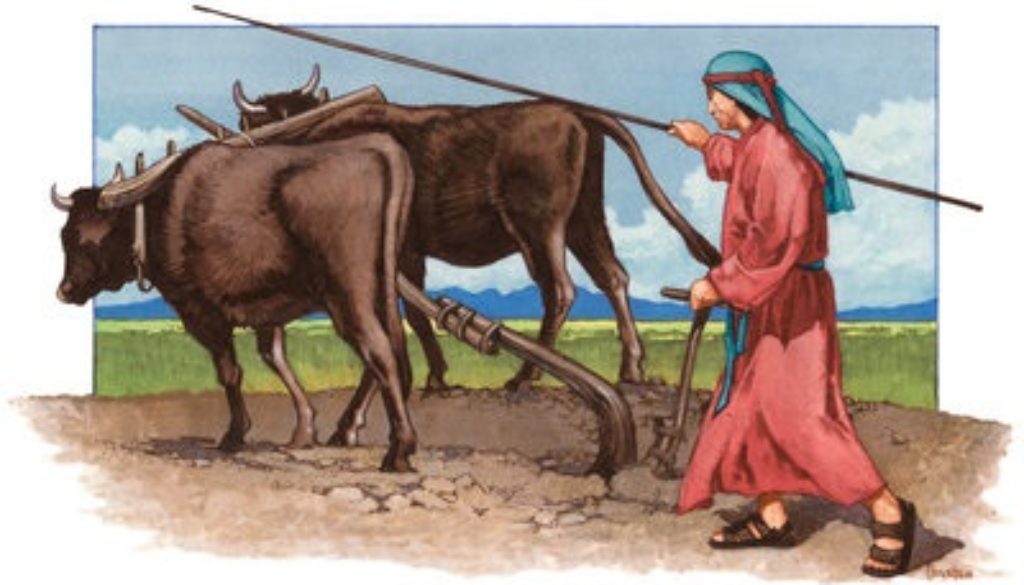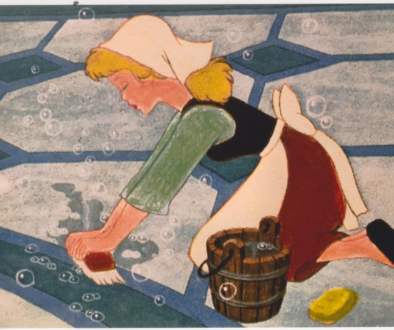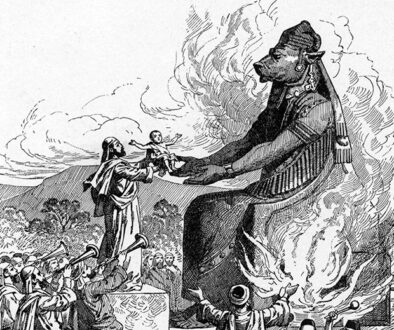Deuteronomy 18:1-8 Levites Rites

God had singled out the Levites as His servants. They would have no inheritance in the land but they would be provided for by Him.
We have seen previously that the Levites were to have no physical property of their own. God instructed that 48 cities be set aside for them though and fields around each of those cities were for their use. We have also learned that the tithe the third year and sixth year were set aside for them and those who were without means of their own.
Furthermore, we know that there were to be NO sacrifices outside of the place God chose as His own. So the Levites living in the cities that were not the place of the Tabernacle received no portion of the offerings or sacrifices of the people except as previously mentioned.
For the Levites who ministered in the Tabernacle they received a portion of the offerings brought to the Lord. They were to be given “the shoulder and the two cheeks and the stomach” (verse 3b) of whatever animal was sacrificed. They also got a portion of all the firstfruits which was the tithe.
Moses told the people that the Levites who lived in all the other cities could, at any time they chose, go and serve in the Tabernacle and receive the same portions that were due any Levite for such service. BUT they could also profit from works from their own hands.
I was curious about what life looked like for the “country” Levite so I googled it (of course) and came across an interesting article. We already knew that the Levites were allowed to use the fields around their towns as places to grow their crops and care for their herds. They sold their wares just like any other Israelite would. But they also served in several other roles. The article I found highlights several other ways they could support themselves.
The occupation of the Levites were in what we call professional fields today. Moses expected this to be the case.
- They were ordained to be teachers of the nation (Deuteronomy 24:8; 33:10; 2 Chronicles 35:3; Nehemiah 8:7).
- They also represented many of the judges of the land, and in the time of Ezra they were the sole members of the Sanhedrin — the Supreme Court of the nation (Deuteronomy 17:8–9; 21:5; 1 Chronicles 23:4; 2 Chronicles 19:8; Ezekiel 44:15, 24)
- Most medical services were in their care (Leviticus 13:2, 14:2; Luke 17:14).
- They were professional singers and musicians (1 Chronicles 25:1–31; 2 Chronicles 5:12; 34:12).
- Producers of books and librarians were almost exclusively Levites (2 Chronicles 34:13).
- It may appear strange to some but even law enforcement was in their care (1 Chronicles 23:4) — they were the “sheriffs” (Moffatt).
- Many of the Levites were architects and builders (2 Chronicles 34:8–13).
As stated before, the Levites earned their living by becoming what we call “the professional people” of the community. http://www.askelm.com/tithing/thi008.htm
The Levites were more than capable of earning a living outside of Tabernacle practices. God made sure of this by including in His Law many roles that the Levite was to perform. Commands regarding skin conditions (Physician), rendering judgments (Judge), maintaining the writings of the Law (Scribes and Teachers) just to name a few.
But their most holy job was to serve the Lord. This He left open for ALL the Levites. They were free to come to Him any time their heart desired. We learned that the priests were on a rotational basis for serving in the Temple from the story of John the Baptist. This story also tells us that they were chosen by lot as to which task they were to perform. But Moses says that they are free to serve at any time too.
I can just imagine God doing something special for a young Levite family and that father feeling overwhelmed with gratitude. Within days he prepares his family for his absence and travels to the House of the Lord. There he pours his heart out in service to his brothers in praise and thanksgiving to God. It isn’t because he wants to line his pockets with the compensation those serving in the Tabernacle receive but because he wants to honor God for what he has received from His hand.
How do I give thanks for what the Lord has done for me? How do you? Do you? Do I? I PRAY the answer to the last two questions is a resounding YES. If not, then there is forgiveness and a renewed future to work on.
I have found myself much more able to give because of what He has given to me of late. But I always try to remember to praise Him in some way, even if it is just a quick prayer. There is SO much in my life to be grateful for! Remembering to say “Thank You” is one of the most important things I can do to show God how much He means to me. The FIRST and MOST IMPORTANT thing I’m thankful for is simply being able to be part of His family. That alone is worth EVERYTHING to me and is beyond words.
Father God, thank You for moving in my heart. Thank You for reminding me to be thankful. Thank You for giving me SO MANY reasons to be thankful. I’m even thankful for the hard lessons I’ve learned along the way; especially the ones that remind me how important it is to appreciate Your hand in my life. If I were to make a “thankful” list right now it would stretch on for days! Keep me ever grateful and sharing from what You have given me. Thank You Holy Spirit for once again making God’s word come alive for my life; for helping me find application even in the “driest” reading.




